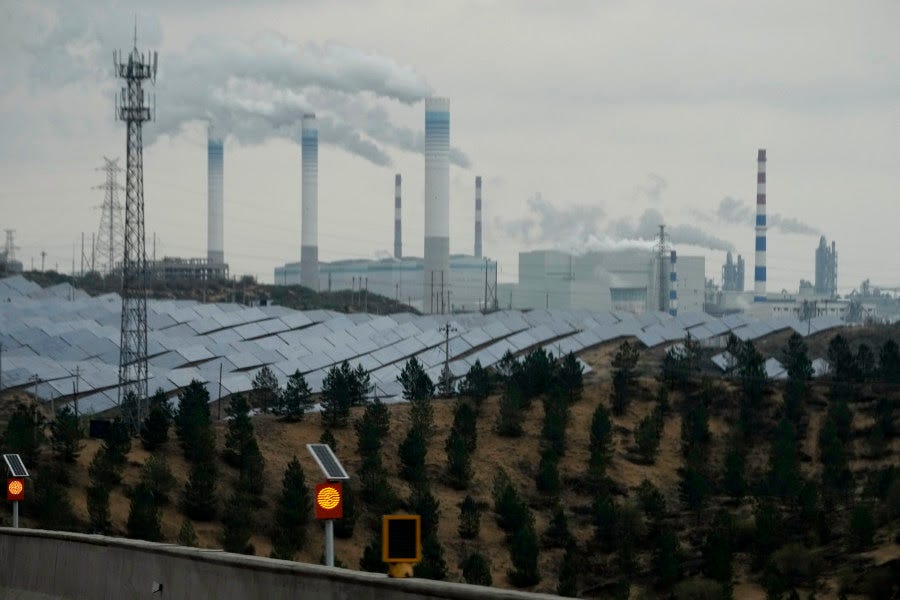“When ‘Transition’ Means More of Everything” By Ed Ballard
“The decline of a green investment darling. Back in 2020, hydrogen-trucking startup Nikola was valued at $30 billion. Stockholders now face a wipeout after it filed for bankruptcy.”
News and analysis from The Wall Street Journal and across Dow Jones
This Week’s Top Stories
Nikola’s trucks were nearly three times the cost of heavy-duty diesel trucks. PHOTO: FABIAN BIMMER/REUTERS
The decline of a green investment darling. Back in 2020, hydrogen-trucking startup Nikola was valued at $30 billion. Stockholders now face a wipeout after it filed for bankruptcy. Nikola failed to bring down the cost of its trucks or develop a fueling network, and founder Trevor Milton is appealing a fraud conviction for misleading investors. Read more.
Steep staff cuts at $400 billion loan program. Roughly 25% of the Energy Department’s Loan Programs Office have resigned or were fired since President Trump took office. It’s unclear whether loan agreements struck under the Biden administration will now be implemented. Read more.
Legal fight looms over New York’s congestion pricing. Trump declared the program—which aims to cut traffic, reduce pollution and fund public transit—dead after the Transportation Department rescinded its approval. “See you in court,” said New York Gov. Kathy Hochul. Read more.
Trump Anxiety Could Boost Sales at These Renewables Companies (Barron’s)
U.S. Faces Obstacles on Road to Supplying the World’s Natural Gas (WSJ)
Hertz Takes Hefty Loss on Sale of EV Fleet (MarketWatch)
In Focus
When ‘Transition’ Means More of Everything
By Ed Ballard
Solar panels and a coal power plant in China's Shaanxi province.
PHOTO: NG HAN GUAN/ASSOCIATED PRESS
We keep building wind and solar farms, but the point at which they will start reducing fossil-fuel consumption seems to keep being pushed back into the future.
Consider two reports released last week. One found that 2024 was the busiest year in a decade for the construction of coal power plants in China, despite China installing far more renewables than anybody else.
Then the International Energy Agency said emissions from power generation would hold steady for the next few years because electricity demand is rising more quickly than expected. That’s a reversal from a year ago, when the IEA said emissions were entering “structural decline.”
In a recent book, “More and More and More,” energy historian Jean-Baptiste Fressoz explores why this is happening. Attacking the idea of the “energy transition,” in which new energy sources replace old ones, Fressoz details how they instead develop co-dependencies that drive overall consumption higher. Once we’ve started using some material, we rarely stop.
The book is rich in jarring statistics; here are five.
⛏️ 3 to 4.5 million cubic meters. How much wood was used annually to make supports for Britain’s coal mines in the early 1900s. A century earlier, Britain was burning a similar amount of wood for heating. Rather than replacing wood, coalmining entailed “burying entire forests.”
🌳 2 billion cubic meters. The amount of wood still burned globally every year—three times more than a century ago. Wood generates more energy than nuclear power.
🛢️ 1 million barrels a year. How much oil was burned in the early 2000s to power cars’ headlamps, based on the extra fuel consumed when the lights are on. That’s double global oil production in 1900.
🔩 7 million tons. The weight of steel tubing used in America’s oil patch in 2010—as much steel as the country used in 1900. The pipelines show the symbiosis of oil and coal, a steelmaking ingredient.
🐋 760,000. The number of sperm whales killed in the 20th century, three times more than in the 19th. One energy-transition myth holds that the use of petroleum rather than whale oil for lighting benefited whales. Actually, demand for whale oil, a useful engine lubricant, rose until the 1960s. A whaling moratorium saved the cetaceans.
The eventual decline in blubber consumption is an exception in a book full of charts pointing up. Hence Fressoz’s conclusion: What it would take to slow emissions from fossil fuels and curb global warming “is beyond historical imagination.” See you next week for more glad tidings.
Tell me what you think: Send your feedback and suggestions to ed.ballard@wsj.com. And if somebody forwarded you this email, you can subscribe here.






